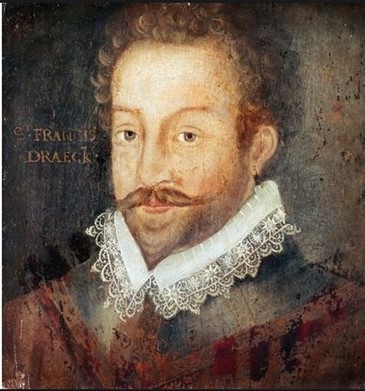Gloriana's Bloody Age
Massacre and Misrule in Elizabethan Ireland
Chapter 4 : The Rathlin Massacre, 1575
The following year Essex had turned his attention to the lands of Sorely Boy MacDonnell on the north Antrim coast. His ground forces had met with limited success, but on 22 July, Sir John Norreys, with 300 men, were carried in the The Falcon and several other ships, captained by Francis Drake (yes, that one) to Rathlin Island. Six miles long and sitting three miles offshore, MacDonnell had used Rathlin as a refuge for his followers, most of whom were non-combatants. Norreys and Drake brought their small flotilla of improvised transports to the island. On landing, they forced the few Scots troops to take refuge in the small castle. Drake landed two cannon and began a four days siege. On the fourth day, the constable of the castle sought terms, and it was from here that accounts varied. Essex claimed that only the constable received terms, while the rest had to 'to stand upon the courtesy of the soldiers'. What is undisputed is the resulting slaughter. The ward and the civilian in the castle were all killed without mercy. Perhaps 200 died, but the bloodletting was only beginning. Over the following days, Norreys' troops scoured the island, looking for those who had hidden themselves in caves and other places of refuge. The hunt for MacDonnell's family and followers continued until Norreys et al. had killed everyone on the island; the English cut down almost 600 men, women and children. Essex gloated in his letters about the massacre, writing how MacDonnell had watched the events unfold from the coastline and had run mad from sorrow. Norreys and Drake's atrocity on Rathin found appreciation in England as Queen Elizabeth wrote to Essex the next month;
'By your letters of 31st July, you advertise us of the taking of the island of the Raughlins [Rathlin], the common receipt and harbour of such Scots as do infest that realm of Ireland, and that your proceeding against Sorley Boy has taken happy success. Give the young gentleman John Norreys, the executioner of your well-devised enterprise, to understand that we will not be unmindful of his good services'.
Despite the easy use of civilian victimisation without any real threat of culpability under English law or even efforts to trammel their worst excess, Essex's colonial adventures in Ulster failed miserably. Essex died in Dublin in September 1576 with little to show for his 'Enterprise' save the corpses and the bitter memories of the Irish and Scots, who discovered just how much they were considered subjects, and how little English law would protect them against the ambition of English officers.



